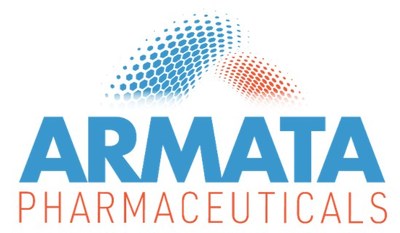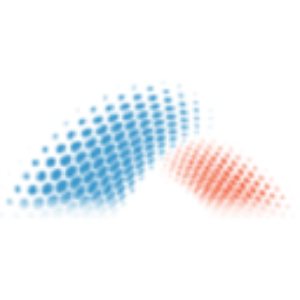Armata Pharmaceuticals Announces Encouraging Results from the Phase 2 Tailwind Study of Inhaled AP-PA02 in Non-Cystic Fibrosis Bronchiectasis Subjects with Chronic Pulmonary Pseudomonas aeruginosa Infection
Rhea-AI Summary
Armata Pharmaceuticals (NYSE: ARMP) announced positive topline results from its Phase 2 Tailwind trial of AP-PA02, an inhaled multi-phage therapeutic for treating chronic pulmonary Pseudomonas aeruginosa infections in non-cystic fibrosis bronchiectasis patients.
The trial demonstrated statistically significant reduction of P. aeruginosa in lung sputum, with effects persisting two weeks after treatment completion. A post-hoc analysis showed significant bacterial reduction at day 17 (P=0.05) and day 24 (P=0.015) compared to placebo. Approximately one-third of subjects treated with phage monotherapy showed at least a 2-log CFU reduction.
The treatment was well-tolerated with mostly mild adverse events, though one possibly related serious adverse event requiring hospitalization was reported. The study suggests AP-PA02 alone could be as effective as combination therapy with antibiotics.
Positive
- Statistically significant reduction in P. aeruginosa bacterial load compared to placebo
- Durable treatment effect lasting two weeks post-treatment
- One-third of monotherapy patients achieved 2-log CFU reduction vs. zero in placebo group
- Generally favorable safety and tolerability profile
- Potential to reduce reliance on chronic antibiotic use
Negative
- Individual cohort analysis showed no significant difference between treatment and placebo
- One serious adverse event reported requiring hospitalization
News Market Reaction – ARMP
On the day this news was published, ARMP gained 1.54%, reflecting a mild positive market reaction.
Data tracked by StockTitan Argus on the day of publication.
Results demonstrate that inhaled AP-PA02 provides a durable reduction of Pseudomonas aeruginosa in the lung, with a favorable safety and tolerability profile
The Tailwind study (NCT05616221) was a multicenter, randomized, double-blind, placebo-controlled trial that evaluated the safety, pharmacokinetics and efficacy of inhaled AP-PA02. The Tailwind study was conducted in two cohorts running in parallel: subjects in one cohort (cohort A) received inhaled AP-PA02 as monotherapy, while subjects in another cohort (cohort B) received inhaled AP-PA02 in combination with inhaled anti-pseudomonal antibiotic treatment. Subjects in both cohorts were dosed at home by nebulization with study drug administered every 12 hours for 10 days and were followed for approximately four weeks after receiving their last dose of study drug.
The primary efficacy endpoint was the reduction in P.a. colony forming units ("CFUs") in the lung sputum at one week following completion of dosing (day 17) compared to baseline. Per the statistical analysis plan, efficacy analysis of each independent cohort showed no significant difference between subjects treated with AP-PA02 and placebo due to small numbers of subjects in each cohort. Notably, a post-hoc intent-to-treat analysis (n=33 active and n=15 placebo; all subjects from both cohorts) demonstrated a statistically significant reduction of P.a. CFUs in the lung at day 17 (AP-PA02 vs. placebo; P=0.05). The reduction in P.a. CFUs persisted two weeks following completion of dosing with AP-PA02 when compared with placebo at day 24 (AP-PA02 vs. placebo; P=0.015). Additionally, paired analysis of P.a. CFU density at baseline compared to day 10 (P=0.03), day 11 (P=0.01), day 17 (P=0.003) and day 24 (P=0.018) was significant in the AP-PA02-treated cohort. We believe the data suggest that AP-PA02 alone is as effective as the combination therapy of phage and antibiotics in reducing P.a. CFUs in the lung. Additionally, approximately one-third of subjects treated with phage monotherapy exhibited at least a 2-log CFU reduction in P.a. compared to no reduction in placebo treated subjects. The study data indicate the potential for phage therapy to reduce reliance on chronic antibiotic use. Armata's latest corporate presentation with topline results from the Phase 2 Tailwind study can be found here.
Safety data indicate that inhaled AP-PA02 was well-tolerated with treatment-emergent adverse events mild and self-limiting. There was one possibly related serious adverse event that was linked to an acute pulmonary event requiring hospitalization that was responsive to antibiotics. We believe the safety and tolerability of AP-PA02 exhibited a promising profile for treating chronically infected NCFB patients.
"The positive results from our Tailwind study further demonstrate the potential of our high-purity phage cocktail as a new monotherapy treatment alternative for chronic pulmonary disease caused by P. aeruginosa infection, including drug-resistant bacteria," stated Dr. Deborah Birx, Chief Executive Officer of Armata. "From the beginning, our mission at Armata has been to evaluate phage-based therapeutics in randomized controlled clinical trials that evaluate safety and efficacy to support potential regulatory approval."
About Armata Pharmaceuticals, Inc.
Armata is a clinical-stage biotechnology company focused on the development of pathogen-specific bacteriophage therapeutics for the treatment of antibiotic-resistant and difficult-to-treat bacterial infections using its proprietary bacteriophage-based technology. Armata is developing and advancing a broad pipeline of natural and synthetic phage candidates, including clinical candidates for Pseudomonas aeruginosa, Staphylococcus aureus, and other pathogens. Armata is committed to advancing phage therapy with drug development expertise that spans bench to clinic, including in-house phage-specific cGMP manufacturing to support full commercialization.
Forward Looking Statements
This communication contains "forward-looking" statements as defined by the Private Securities Litigation Reform Act of 1995. These statements relate to future events, results or to Armata's future financial performance and involve known and unknown risks, uncertainties and other factors which may cause Armata's actual results, performance or events to be materially different from any future results, performance or events expressed or implied by the forward-looking statements. In some cases, you can identify these statements by terms such as "anticipate," "believe," "could," "estimate," "expect," "intend," "may," "plan," "potential," "predict," "project," "should," "will," "would" or the negative of those terms, and similar expressions. These forward-looking statements reflect management's beliefs and views with respect to future events and are based on estimates and assumptions as of the date of this communication and are subject to risks and uncertainties including risks related to Armata's development of bacteriophage-based therapies; ability to staff and maintain its production facilities under fully compliant current Good Manufacturing Practices; ability to meet anticipated milestones in the development and testing of the relevant product; ability to be a leader in the development of phage-based therapeutics; ability to achieve its vision, including improvements through engineering and success of clinical trials; ability to successfully complete preclinical and clinical development of, and obtain regulatory approval of its product candidates and commercialize any approved products on its expected timeframes or at all; and Armata's estimates regarding anticipated operating losses, capital requirements and needs for additional funds. Additional risks and uncertainties relating to Armata and its business can be found under the caption "Risk Factors" and elsewhere in Armata's filings and reports with the SEC, including in Armata's Annual Report on Form 10-K, filed with the SEC on March 21, 2024, and in its subsequent filings with the SEC.
Armata expressly disclaims any obligation or undertaking to release publicly any updates or revisions to any forward-looking statements contained herein to reflect any change in Armata's expectations with regard thereto or any change in events, conditions or circumstances on which any such statements are based.
Media Contacts:
At Armata:
Pierre Kyme
Armata Pharmaceuticals, Inc.
ir@armatapharma.com
310-665-2928 x234
Investor Relations:
Joyce Allaire
LifeSci Advisors, LLC
jallaire@lifesciadvisors.com
212-915-2569
![]() View original content to download multimedia:https://www.prnewswire.com/news-releases/armata-pharmaceuticals-announces-encouraging-results-from-the-phase-2-tailwind-study-of-inhaled-ap-pa02-in-non-cystic-fibrosis-bronchiectasis-subjects-with-chronic-pulmonary-pseudomonas-aeruginosa-infection-302335676.html
View original content to download multimedia:https://www.prnewswire.com/news-releases/armata-pharmaceuticals-announces-encouraging-results-from-the-phase-2-tailwind-study-of-inhaled-ap-pa02-in-non-cystic-fibrosis-bronchiectasis-subjects-with-chronic-pulmonary-pseudomonas-aeruginosa-infection-302335676.html
SOURCE Armata Pharmaceuticals, Inc.







